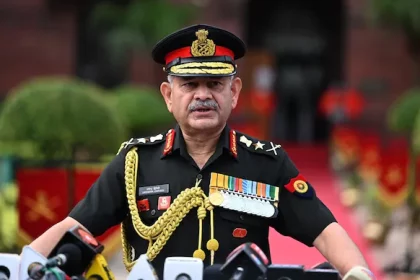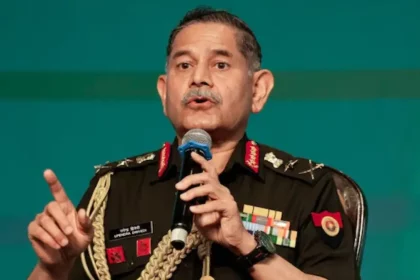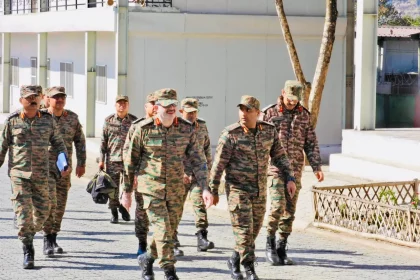Indian Army Rejects China’s Claim Over Shaksgam Valley, Calls 1963 Pact Illegal
Army Chief Reaffirms India’s Sovereignty, Rejects Beijing’s Infrastructure Activities in Disputed Region.
Army Ready to Induct Women in Infantry if Society Is Prepared, Says COAS General Upendra Dwivedi
Gender-Neutral Standards, Phased Integration and Modernisation Drive Shape Army’s Vision for Women in Combat Roles
Havildar Muhammad Salmaan Meer of Special Forces Named Best Student as Platoon Commanders Course Concludes at JL Wing, Belagavi
Tri-Service Leadership Training Strengthens Tactical Excellence and International Military Cooperation.
Lt Gen Abhijit S Pendharkar Reviews Operational Readiness of Spear Corps in Arunachal Pradesh
Corps Commander validates forward-area preparedness, reviews IMACC arrangements, and lauds innovation and drone expertise of Spear Head Division.
Newly Raised Bhairav Army Units Adopt ‘Naga Vasuki’ as Insignia, Symbolising Fearlessness and Stealth
Bhairav Light Combat Battalions’ new insignia reflects stealth, courage and indomitable spirit as part of Army transformation.
Meet Major Swathi Shantha Kumar: Wins UN Award for Gender-Inclusive Peacekeeping
Major Swathi Shantha Kumar's receipt of the UN Secretary-General's Award 2025 stands as a testament to her professional excellence and…





